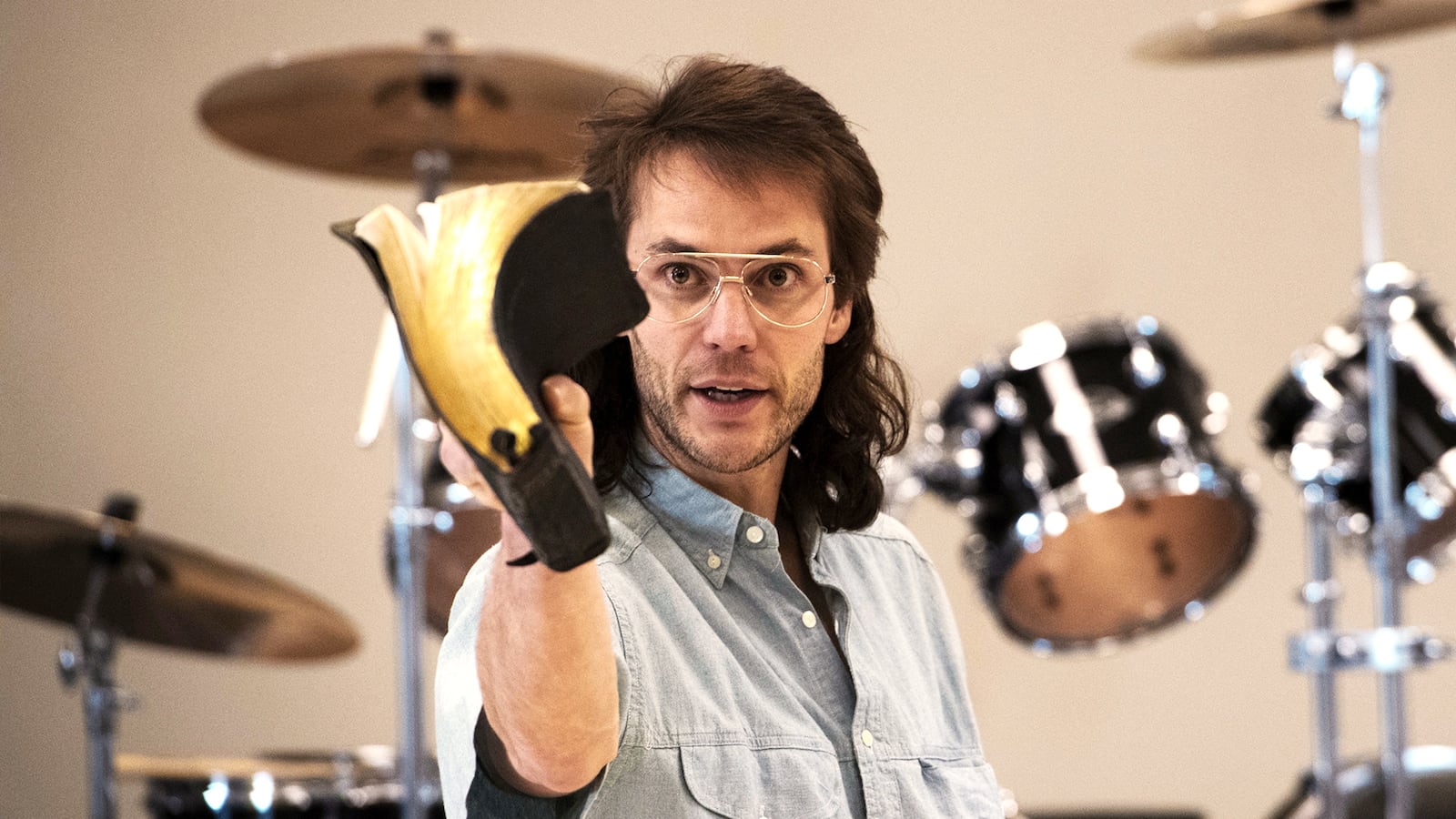The current political climate has seen a shift in popular culture to match it. Films and TV shows are inevitably weighed by how “of the moment” they are, and how well they reflect or address current events. (Sometimes it’s warranted. The Post, for instance, was directly reactionary to the Trump administration’s war on the press.) In light of that natural inclination, it’s unsurprising that the question of how much we can trust our government has become a prominent theme in most contemporary works. And though it’s difficult to say whether or not the 1993 Waco siege warrants revisiting, the Paramount Network’s new six-part miniseries Waco does the best job of examining such a loaded question.
David Koresh (portrayed here by Taylor Kitsch), born Vernon Wayne Howell, led a religious cult known as the Branch Davidians. He saw himself as a prophet, and lived with his followers at the Mount Carmel Center near Waco, Texas. The community came under scrutiny when it was alleged that Koresh had taken multiple underage brides and fathered children by some of them, and when it came to the government’s attention that the compound might be stockpiling illegal weapons. As such, the ATF obtained search and arrest warrants, and began planning a raid.
On February 28, that raid turned into a gun battle, and that gun battle turned into a 51-day siege. It ended on April 19, when, after the FBI launched an assault in an attempt to drive the Branch Davidians out of the compound, Mount Carmel Center burned down. Seventy-six people, including Koresh, were killed.
Much of what happened is the source of controversy, and the responsibility for what occurred before, during, and after the siege has yet to be clearly divided. By necessity, Waco provides a somewhat less blurry timeline of events, but the way it gets across the hubris and miscommunication that ultimately led to such a catastrophe helps to maintain the sense of disorientation that still exists around the Waco siege, a quarter of a century later.
The series, created by brothers John Erick Dowdle and Drew Dowdle, mainly accomplishes this through deploying an even hand, which, given how the siege has been portrayed in the past, makes Koresh and his followers seem unusually sympathetic, and the government a force to be feared—and more to the point, to be doubted. The government agents we see are, by and large, more concerned with public image and personal reputations than the wellbeing of other people. To drive the point home, the series spends two episodes establishing the dynamic within Mount Carmel Center, including the plight of the leaders’ wives (played by Melissa Benoist and Andrea Riseborough), making sure we see the Branch Davidians as people instead of props, before finally digging into the raid.
Most of the credit here has to go to Paul Sparks as Steve Schneider, Koresh’s right-hand man, John Leguizamo as Jacob Vazquez, an undercover agent, and Michael Shannon as Gary Noesner, an FBI hostage negotiator and the hero of the entire piece. The events that are unfolding are so horrible that they could easily detach from reality, but the three performances are so well grounded that they keep the series anchored, offering three different perspectives on the siege. Schneider, who has lived in the compound for years, has an obvious interest in keeping things as they are. Noesner is an outsider brought in to help resolve the case. Vazquez exists in between, as he knows there’s something wrong in the compound, but also feels a certain amount of responsibility for the people inside, who’ve been nothing but kind to him.
As Koresh, Kitsch is nothing if not compelling—at first, it makes sense that people would believe him to be a prophet—but there’s too much evidence stacked up against him for him to come out of this as a hero, and the Dowdles know it. They don’t skirt around the worst parts of his self-delusion, and as the series goes on, Koresh begins to transform from a messiah into a paper man. Though there’s plenty of blame to be placed on the government’s handling of the situation, Koresh isn’t blameless, either.
Each time it seems like the narrative will tip too heavily in favor of one side over another, a new wrench gets thrown into the works. When Koresh threatens to become too sympathetic, we’re reminded of the fact that he was accused of statutory rape. When the ATF or FBI seem too heroic, we’re reminded that they may very well have instigated the shoot-out, and covered up details in order to make themselves seem less incompetent. To that end, Waco becomes one of the most effective “true crime” series in recent memory, as it doesn’t succumb to the pressure of declaring a hero or a villain, nor creating a narrative that’s crystal clear in terms of who was responsible for what. And, as a warning to the weak of heart: Waco also doesn’t cut any corners when the siege actually begins. The gunfire is earsplitting, and each wound and each death is a punch to the gut, to the point that even the thought of the inevitable fire is enough to set the stomach turning.
As the Paramount Network’s first scripted series, the star-studded Waco is an incredibly promising start. While it’s not a story with anything new to say, it’s so well executed that it almost doesn’t matter. And for those unfamiliar with the events of the siege, it provides a balanced look at one of the most horrifying showdowns between the U.S. government and its people.
Correction: An earlier version of this article mistook the name of John Leguizamo's character. It is Jacob Vazquez.






